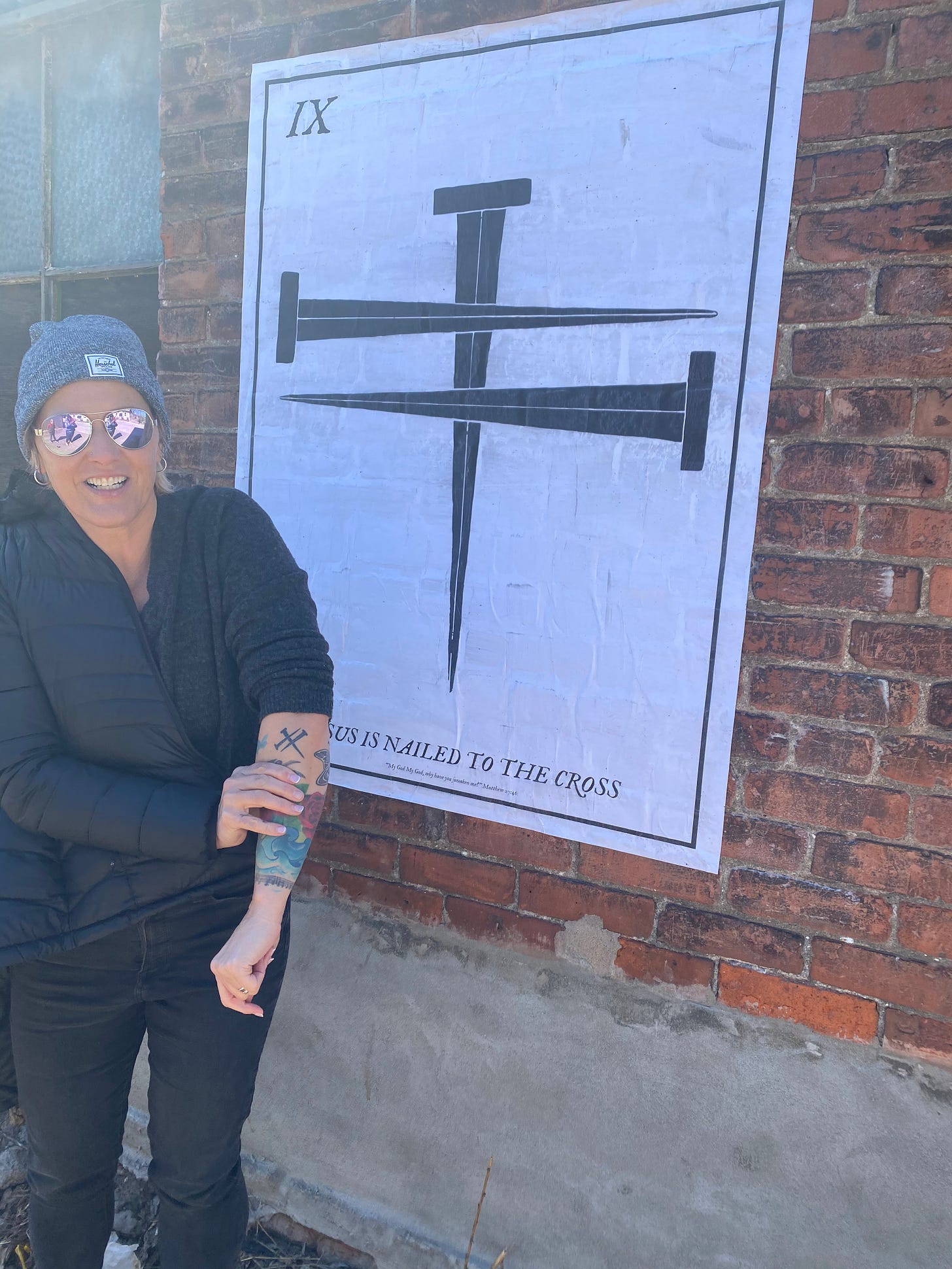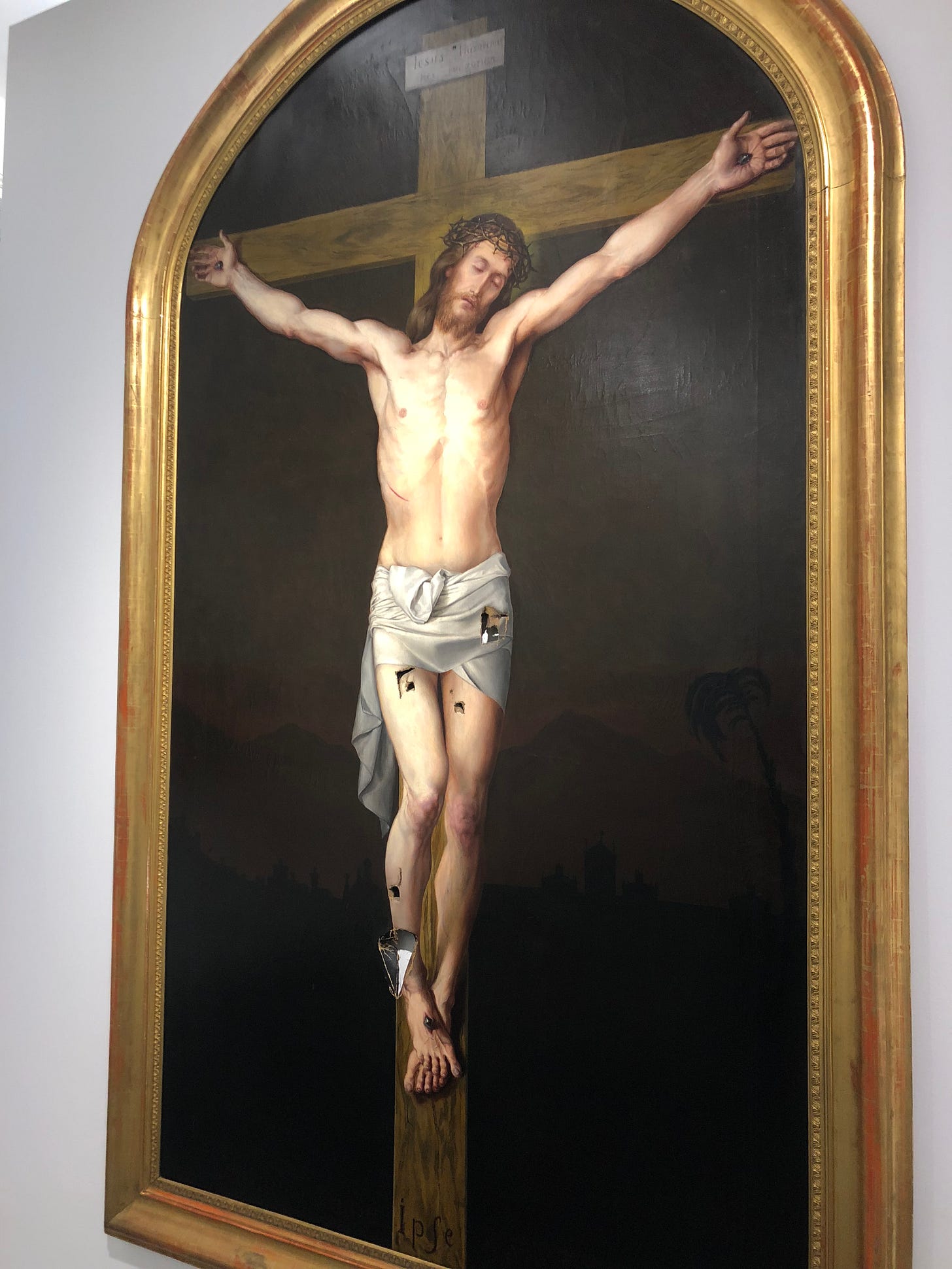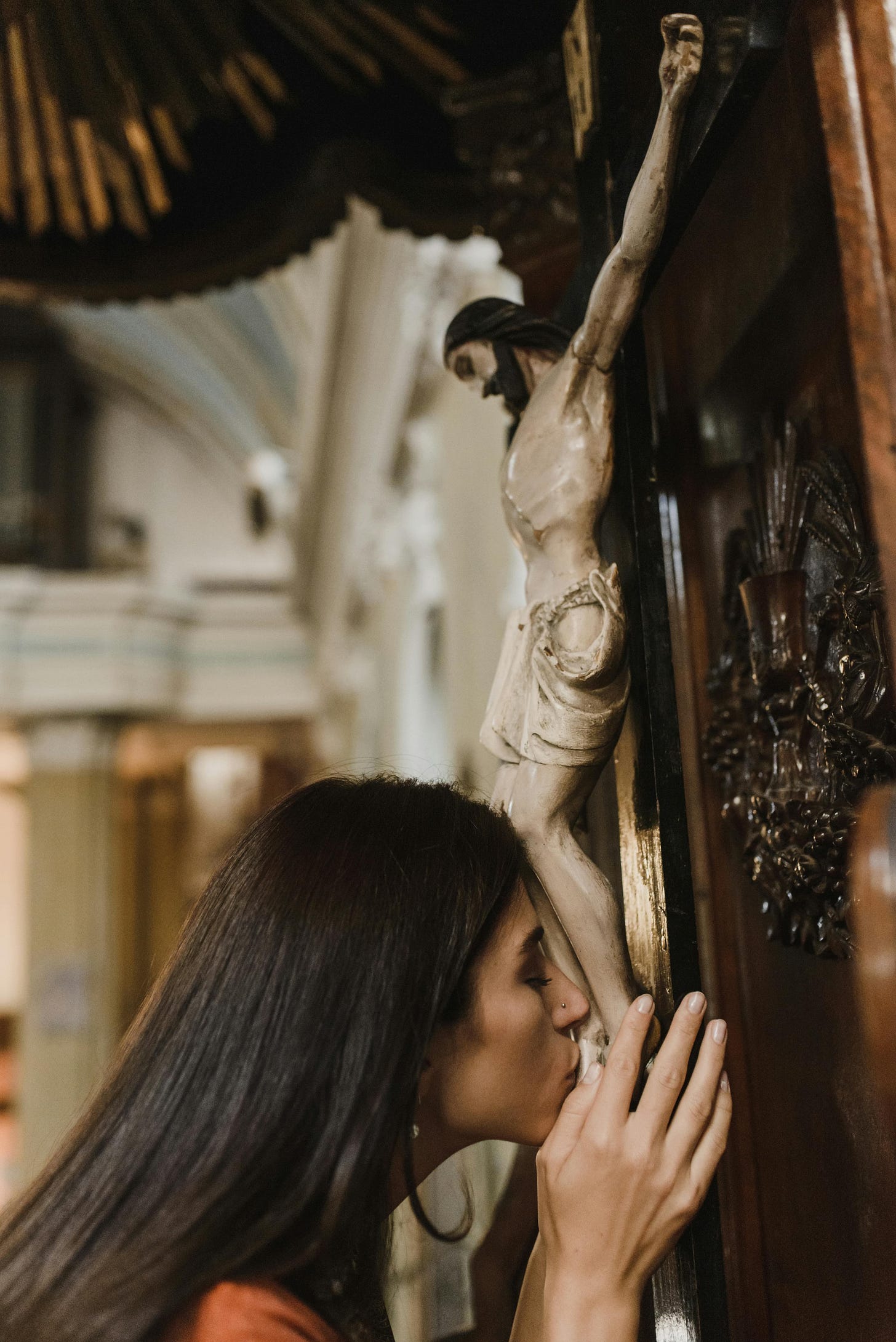Atonement.
Scott Erickson Art - Stations in the Street (scottericksonart.com) & Danielle’s matching tattoo :-)
It feels like a heavy word.
Loaded with guilt and shame.
But what does it mean? Where does it come from?
It’s simpler than we might think. And more complicated than we can imagine. Quite simply it means ‘being at one’ (at-one-ment). We know that, through Jesus, we are atoned to God. The curtain that separated us from The Almighty has been split in two. But many of us will still be asking the question, why did Jesus have to die?
It’s a GOOD QUESTION.
We have heard many answers.
‘Jesus died for our sins’
‘Jesus took our punishment’
‘Jesus paid the price’
These words have been drilled into us since our earliest days in Sunday School. But as we have come to understand God more richly, ourselves more intimately, and God’s love for us more profoundly, they can begin to sound shallow. What does it mean to say ‘Jesus died for our sins?’ How did Jesus’ death do that? ‘Does God really need to punish sin?’ ‘If Jesus paid the price…who did he pay it to?’
So, it’s simple AND complex and all of it wonderful to explore.
To that end, we’ve created a 4 part PODCAST (mini-series) where James and Danielle go on a deep dive, exploring why Jesus died with a humble expectation and excitement for fresh and deep revelation.
Some highlights of our exploration:
Is the belief that God had to punish Jesus for our sins really as old an idea as we have been told? Or is it possible that something else is going on?
How many theologies of atonement are there anyway? And why does that matter?
How did one idea of what happened on the Cross become the predominant view? And how might that impact the way we relate to God?
For a long time, many people writing about the cross have not been the ones at risk of being crucified themselves;
what does it look like to focus on the cross from a victim-centered mindset?
What can we learn about Jesus from the voices that have been silenced for so long? What does liberation theology have to do with a robust exploration of the crucified Christ?
The Crucified Christ vandalized by Nazis at St. Stephen’s Cathedral in Vienna Austria (mentioned in the podcast).
How might our experience of Jesus deepen with wider theological understandings of the cross?
What does it mean for us to give ourselves over to the mystery of the cross?
Is it ok to ask difficult questions and stand amazed by answers beyond our capacity to understand?
Might the crucifixion of Jesus be a disruption that invites us into a deeper mystery of divine Love?
If the Cross is foolishness to those who don’t know God, as the apostle Paul mentioned, then what does it look like to live like a fool?
How does the Cross inform our way of life? Or does it?
Joash Thomas from the International Justice MIssion joins us for the final episode on how a crucified Jesus leads the way to justice and love that is costly, personal and Good News to the whole world.
We hope that you’ll join in our adventure as we attempt to make it make sense and wrestle with this important question: why did Jesus have to die?
We believe the answer is more simple and complex than we ever imagined and the answers, as we discover them, will lead us to behold God, who is more living, and more beautiful than we ever dreamed.






